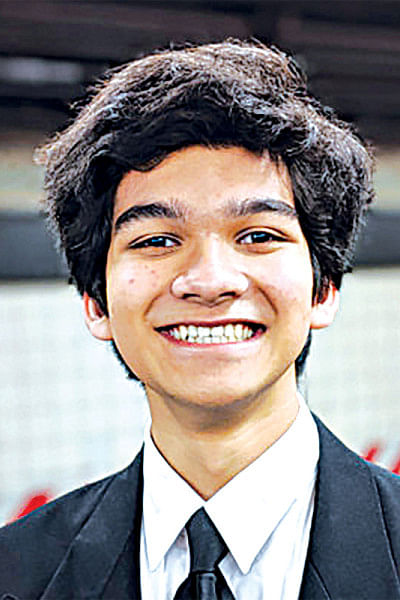Harnessing data analytics for social good

Working first-hand with the Health Ministry and icddr,b, Shayan Chowdhury led data analysis projects that traced the Covid-19 outbreak, hospitalisations, deaths, and mobility to inform actionable policy for lockdowns, public health communications, and healthcare decisions.
He is also the Co-founder of Reach4Help, a non-profit organisation that facilitates volunteer help worldwide. For his humanitarian work, he has earned a place in the Dhaka Hub Global Shapers 2021 Cohort.
The Global Shapers are a community of young leaders and changemakers aged between 20 and 30, curated by the World Economic Forum. The Dhaka Hub was founded in 2014.
In an interview with The Daily Star, Shayan discussed his experiences in data analytics, and more.
What does your work as a data analyst entail?
I interpret large data sets to determine pain points for exercising policies and the effectiveness of crisis intervention strategies. We worked with Grameenphone and Robi to track locations of people who tested positive for Covid-19 so we could predict which areas the virus will be spreading to.
You are a research assistant at Columbia University. What are you currently working on?
I am working on a novel approach to monitor fetal well-being using electrocardiogram (ECG) signals. We use data analytics and machine learning models to detect stress and anxiety patterns in pregnant women.
Tell us about Reach4Help.
It is an open source software development initiative that gives people better and quicker access to resources, and allows organisations to control risks and therefore, be more resilient. We are working with data streams to connect NGOs with displaced Ukrainian refugees so they can be provided with food and shelter, among other resources.
What inspired you to get into this field?
Growing up, I did not have the popular video game Minicraft, so I thought if I cannot play it, why do not I develop a game from scratch? I taught myself how to code and it opened up a whole avenue of possibilities for me. I garnered experiences through an internship at the NY Genome Center, then I also worked with Nobel Laureate Joachim Frank's lab at Columbia University and completed a mentorship at Google.
How has being a part of Dhaka Hub enriched your experience?
It gives me immense pleasure that I can represent Bangladesh on a global platform. I was incredibly inspired by the brilliant insights of the entrepreneurs, community leaders and designers I met through Dhaka Hub.
The author is a student of BRAC University, and a freelance journalist.
Email: [email protected].

 For all latest news, follow The Daily Star's Google News channel.
For all latest news, follow The Daily Star's Google News channel. 



Comments